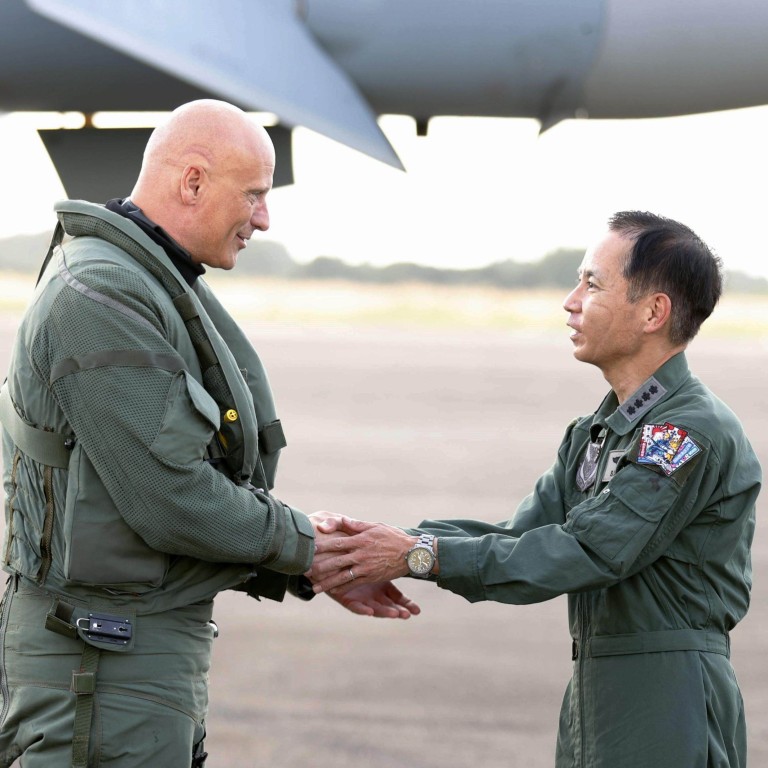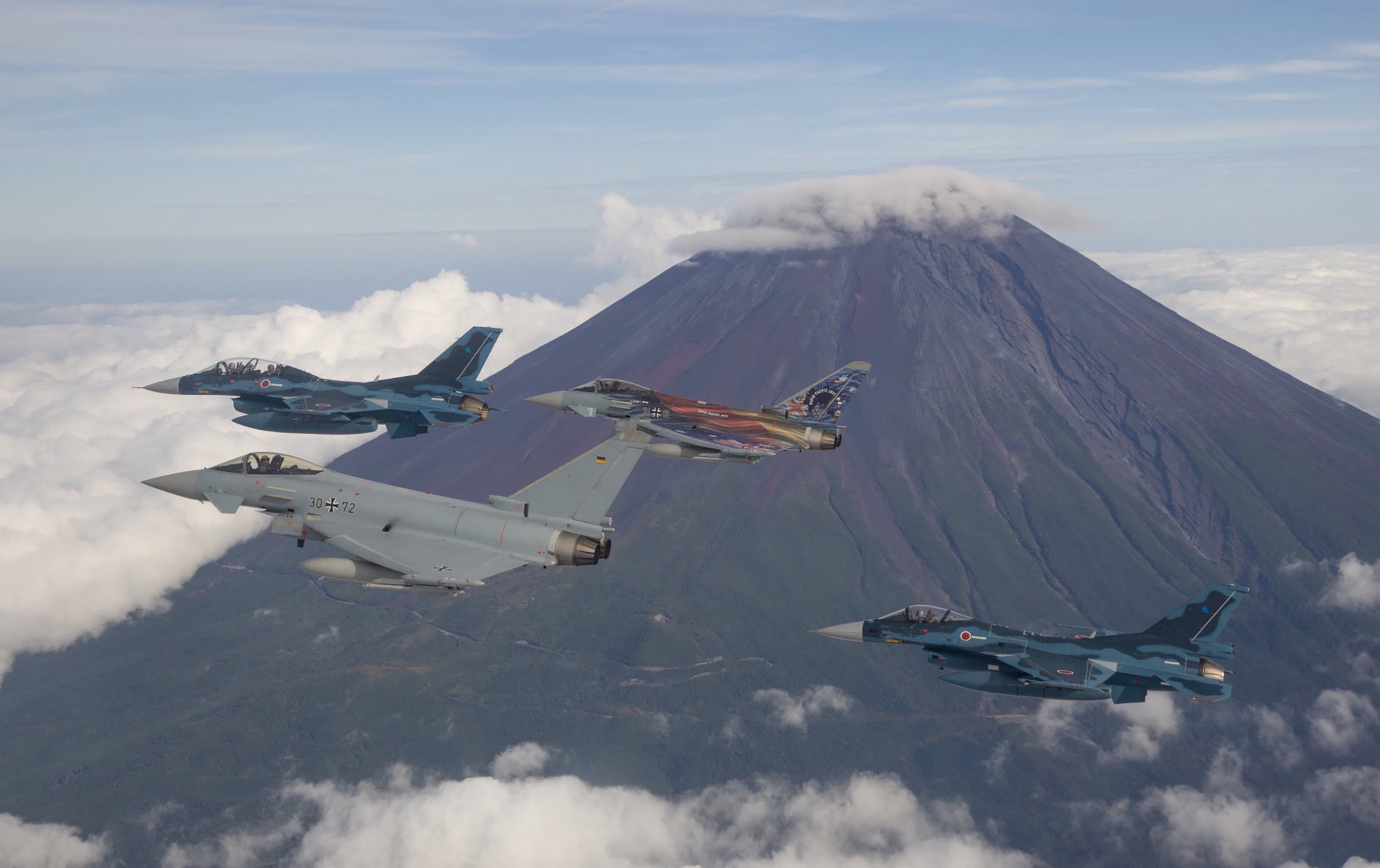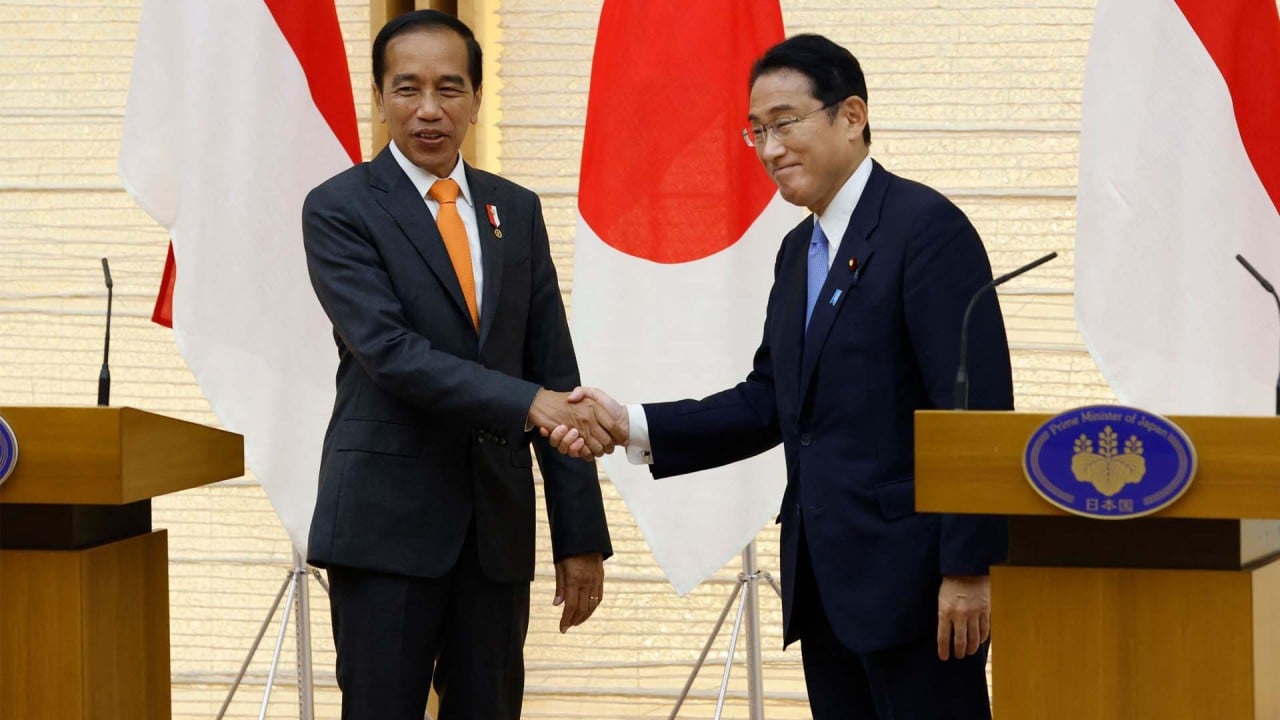
German-Japanese air exercise needed in face of China’s military build-up in region: defence minister
- Three Japanese F-2 fighters and three German Eurofighter Typhoons took part in formation and navigation training in Japan on Wednesday
- German ambassador to Tokyo says other deployments will follow in future because ‘the security situation in the region is relevant to us’
Three Japanese F-2 fighters and three German Eurofighter Typhoons took part in the formation and navigation training designed to strengthen their air forces’ defence cooperation, promote understanding and improve Japanese air force tactical skills, the Japan Air Self-Defence Force said.
A video posted by Japan’s air defence force to Twitter on Thursday shows the German and Japanese jets flying in a formation around 3,700 metres (12,100 feet). The exercise was “significant from the perspective of maintaining and strengthening [a free and open Indo-Pacific], not only to Germany but also to other European countries”, it said.
Germany draws up new China trade policy: ‘Can’t let ourselves be blackmailed’
German Defence Minister Christine Lambrecht told The Japan Times that confidence-building measures, such as joint military exercises and being more transparent with military capabilities, were needed as China built up its military across the region.
Any conflict in the Indo-Pacific would “affect Germany massively, in multiple ways” because of the economic growth, trade routes and geopolitical rivalry in the region, she said in an interview published on Monday.
That was echoed by Clemens von Goetze, the German ambassador to Japan, in a press conference on Thursday at the Foreign Correspondents’ Club of Japan.
“In the Indo-Pacific, we want to show with this deployment, both of the frigate and of the aircraft, and others – other deployments will follow in the future, that has been made clear – that the security situation in the region is relevant to us,” he said.
Lieutenant General Ingo Gerhartz, the German air force chief, who was also at the news conference, said the deployment to Asia was not targeting China.
“It is not a signal against anybody,” he said. “It is a signal in favour of our partners here, our partners who share the same values as us. We did not provoke anybody.”

Gerhartz did not directly respond to a question about whether Germany would join in military efforts to defend Taiwan if Beijing attacked the island to bring it under its control.
“I don’t see any military option here at all. This has to be a political and diplomatic solution.”
Yue Gang, a former PLA colonel, said Germany’s military presence in the region was more symbolic than those of the US and Japan.
“The West has been saying that China is becoming more aggressive in the oceans and that it has to maintain order at sea. So Germany must also take part in those efforts, but it does not intend to threaten or challenge China.”
Japan and China mark 50 years of formal ties amid deepening ‘trust deficit’
Wang Yiwei, a Renmin University professor specialising in European studies, agreed that Germany’s role was largely symbolic, which he said was reflective of the country’s ambiguous China policy in a transitional period and the three-party governing coalition under Chancellor Olaf Scholtz.
But the joint military exercise also showed that partnerships in the Asia-Pacific were moving towards being less US-centric and more multipolar.
“In the past, the US was more outspoken in Asia,” he said, pointing to Washington’s close partnerships with Japan, South Korea, the Philippines, Australia, New Zealand and Taiwan. “The Indo-Pacific has become multilateral. Now, European countries are also increasingly connected with the region.”


